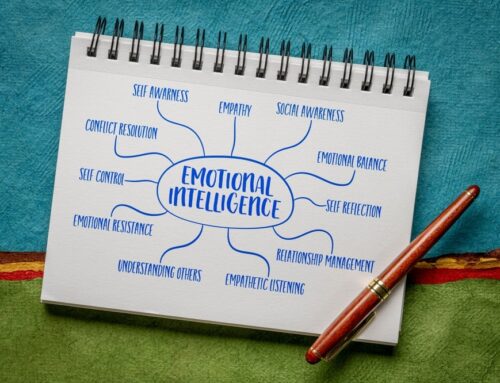
Conflicts are almost inevitable in today’s fast-paced work environment. Whether sparked by misunderstandings, differing viewpoints, or competition over resources, conflicts—especially when they escalate into violent conflict—often create tension that disrupts productivity and hampers collaboration.
However, while many view conflict as something to avoid or quickly resolve, there is another perspective—one that sees conflict as an opportunity for transformation. Conflict transformation approaches these issues differently, not by simply ending disputes but by leveraging conflict and other forms of tension to build stronger relationships, address deep-rooted causes, and foster sustainable peace in the workplace.
The term conflict transformation addresses the core issues that perpetuate discord. As this approach gains traction, more organizations are looking to understand how conflict transformation differs from traditional methods like conflict resolution and management.
In the sections below, we will delve into these differences, explore real-life examples of conflict, and outline practical strategies for integrating conflict transformation in professional settings.
What Is Conflict Transformation?
The term conflict transformation addresses the root causes, changing perceptions, and nurturing relationships to create a more constructive environment.
In the words of peace scholar John Paul Lederach, conflict transformation is a “complex process” that engages individuals and systems in evolving conflict from adversarial to constructive engagement.
At its core, conflict transformation is proactive, seeing the potential for growth in every intractable conflict rather than just aiming to end conflict.
Importance of Conflict Transformation
The term conflict transformation is valuable because it:
- Addresses systemic issues: It delves into social and cultural frameworks that perpetuate conflict.
- Focuses on relationship building: It nurtures connections between individuals and groups, fostering a foundation for long-term peace.
- Enables continuous growth: It treats conflict as an evolving process, allowing individuals and systems to learn and improve over time.
- Supports social change: It has the power to change structures and policies, creating more equitable environments for all involved.
- Encourages cultural sensitivity: It recognizes and adapts to cultural nuances and cultural patterns inherent in conflicts.

Comparison of Conflict Transformation, Resolution, and Management
| Approach | Aim | Focus | Example Contexts |
| Conflict Transformation | Long-term peace through structural change | Systemic change and relationships | Deep-rooted, complex issues |
| Conflict Resolution | Ending conflict with a mutually acceptable solution | Immediate issues | Negotiating agreements for clear-cut disputes |
| Conflict Management | Controlling conflict intensity without full resolution | Surface-level symptoms | Keeping order in high-conflict environments |
Conflict Resolution
The term conflict resolution emphasizes finding a solution to disputes, often focusing on the immediate problem rather than deeper issues. By definition, conflict resolution training integrates mediation or negotiation to meet both parties’ immediate needs, typically leaving deeper concerns unaddressed.
Conflict Management
Conflict management emphasizes stability, aiming to control a dispute’s intensity and effects rather than resolve it entirely. For instance, teams might use managerial interventions to reduce friction within group life. This addresses immediate issues without delving into the complex process required to resolve long-standing grievances or root causes of tension.
Conflict Transformation
Unlike the other methods, the conflict transformation seeks to alter the entire framework of interaction. This approach digs deep into issues such as social conflict, cultural dimensions, and relationships. Conflict transformation addresses these elements, not only providing an immediate solution but also building a foundation for healthier interactions.
Examples of Conflict and Ways to Deal with It
Conflict transformation is most effective when tailored to specific situations. Below are some examples of real workplace conflicts that illustrate how conflict resolution, management, and transformation approach them differently.
Power Struggles in Leadership Roles
In many organizations, hierarchical roles can lead to power struggles, especially when leadership roles overlap or when leaders have different visions. For example, two department heads could be competing over limited resources. This competition can lead to tension and hinder collaboration.
- Conflict Resolution: The department heads could negotiate resource allocation, perhaps agreeing to share resources equally.
- Conflict Management: Managers might implement policies limiting resource requests to avoid direct conflict, keeping the peace without addressing the underlying issue of competition.
- Conflict Transformation: Through mediation, leaders are encouraged to examine how resource distribution impacts the entire organization. This approach could foster a cooperative structure that changes the way resources are viewed and shared.
Cultural Conflicts Among Team Members
In a globalized workplace, cultural differences are a frequent source of social conflict. Employees from various cultural backgrounds may interpret communication and behavior differently, leading to misunderstandings.
- Conflict Resolution: HR might intervene to clarify miscommunication, helping team members agree on common ground.
- Conflict Management: Policies on inclusive language and etiquette may be enforced to prevent misunderstandings, but deeper issues may remain.
- Conflict Transformation: A workshop on culture could deepen understanding and foster empathy, transforming how team members approach and respect cultural differences. This change encourages understanding and long-term harmony.
Resistance to Change
Resistance is common in organizations undergoing rapid change, whether due to mergers, leadership shifts, or new technology. Employees may resist, fearing it will disrupt established roles or create an uncertain future.
- Conflict Resolution: Managers might reassure employees about the change, offering incentives or job security to ease immediate concerns.
- Conflict Management: The leadership may temporarily defer certain changes, allowing employees more time to adapt.
- Conflict Transformation: Leaders could initiate group dialogues to involve employees in the change process, addressing their concerns and enabling a shared vision. This inclusive approach transforms resistance into cooperation, building trust and openness.
Strategies and Techniques
Effective conflict transformation requires a repertoire of skills, each tailored to fostering dialogue, understanding, and proactive engagement.

Mediation and Negotiation Skills
Mediation and negotiation are crucial skills in conflict transformation. In conflict mediation, a neutral party facilitates dialogue, helping disputing parties uncover underlying concerns and reach a collaborative solution.
Unlike simple dispute resolution, which might end in compromise, mediation seeks solutions that meet all parties’ needs, creating lasting peace. Negotiation is similarly essential in conflict transformation, as it requires active listening techniques and an understanding of interests to create a solution that all parties can embrace.
Effective Communication Techniques
Communication is at the heart of conflict transformation. Techniques such as reflective listening, open-ended questions, and non-verbal awareness are essential for uncovering the deeper motivations in a conflict. These methods encourage parties to see beyond their own perspectives, facilitating greater empathy and understanding.
These techniques foster clear understanding and minimize misinterpretation, leading to more resilient relationships and fewer conflicts.
Active Listening and Empathy Development
Active listening is not simply about hearing words but engaging deeply with what the other person is conveying. In conflict transformation, active listening allows each party to feel understood, paving the way for understanding and empathy.
Empathy, in turn, can defuse tension and open doors to creative, compassionate solutions. When paired with cultural awareness, empathy can bridge even the most challenging divides, transforming conflicts into opportunities for peace-building.
Collaborative Problem-Solving
Collaborative problem-solving is an essential skill for transforming conflicts, as it shifts the focus from competing perspectives to cooperative solutions. In this approach, participants work together to understand each other’s interests and brainstorm ideas that satisfy the needs of all parties.
Unlike simple compromise, which may leave each side partially dissatisfied, collaborative problem-solving aims to create win-win solutions where everyone feels heard and valued.
Techniques often used in collaborative problem-solving include:
- Brainstorming sessions: Allowing all parties to contribute ideas freely without judgment.
- Interest-based framing: Helping individuals articulate their core needs and values, moving the conversation beyond positions.
- Consensus-building activities: Encouraging all parties to reach a mutual agreement that they genuinely support.
Key Benefits of Conflict Transformation Training
Conflict transformation training has a far-reaching impact on organizational culture, leadership, and overall employee well-being. By engaging deeply with underlying causes of tension and emphasizing mutual understanding, this training builds resilience within teams and empowers individuals to manage conflicts in constructive ways.
Improved Workplace Environment
Conflict transformation creates a foundation for a more harmonious workplace. Training in this approach encourages open communication, where employees feel comfortable discussing issues rather than avoiding them.
Relationships built on trust and understanding reduce workplace stress and lead to higher job satisfaction. When teams are equipped to handle social conflict constructively, they are more likely to collaborate and innovate.
Additionally, by addressing the root causes of conflict, training fosters a workplace culture where misunderstandings and friction are less likely to escalate.
Enhanced Leadership and Teamwork
Leaders trained in conflict transformation develop valuable skills in decision-making, negotiation, and empathy development. Such leaders act as role models, showing employees that conflicts can be opportunities for social change.
When leaders excel at handling conflict through active listening and clear understanding, they set a tone of respect and cooperation that spreads throughout the organization. Teams also benefit as individuals learn to communicate more effectively, prioritize understanding, and value diverse perspectives.
Ultimately, conflict transformation strengthens relationships within teams, improves leadership skills, enhances teamwork, and builds an inclusive environment.
Long-Term Conflict Prevention
Unlike temporary fixes, conflict transformation promotes long-term conflict prevention. This approach addresses deep-rooted issues within an organization, recognizing that resolving such issues can be a complex process involving power imbalances and communication gaps that may contribute to recurring conflicts.
With training, employees are empowered to recognize and address these issues before they intensify, creating a proactive culture of peace-building. By investing in conflict transformation, organizations can reduce the costs associated with frequent disputes, creating a healthier, more stable workplace.
How to Improve Conflict Transformation Skills
Developing skills in conflict transformation requires dedicated practice and structured learning. Below are several effective ways to build these skills, each designed to address specific elements of conflict transformation.
Workshops and Seminars
Workshops and seminars provide foundational knowledge and practical skills for handling violent conflict, dispute resolution, and conflict management. Through interactive sessions, participants gain insights into the complex process involved in conflict transformation, such as understanding cultural dimensions and identifying root causes.
Seminars often bring in experts who can share real-world examples and case studies, illustrating how to handle difficult situations effectively. The blend of theory and hands-on learning in workshops makes them an essential part of any conflict transformation training program.
Roleplaying Exercises
Roleplaying is a powerful tool for developing empathy and practicing active listening. These exercises place participants in real-life scenarios where they must engage with others’ perspectives.
For instance, one participant may take on the role of a team leader in a tense meeting, while others play the roles of employees with differing viewpoints. Through roleplaying, individuals can experience the spiritual aspects of conflict transformation, understanding how deep-rooted beliefs and values shape conflicts.
Roleplaying also enhances participants’ ability to navigate conflict settlement, helping them to apply their learning in a supportive environment before facing real-world challenges.
Personalized Conflict Transformation Programs
A personalized program tailors training to the specific needs of an individual or organization, making it highly effective for addressing intractable conflicts. For example, if a team regularly deals with interdepartmental conflicts, the program can be designed to focus on relationship building, negotiation, and transforming conflict within that context.
Such programs dive into the unique relationships, interests, conflict settlement approaches, and power dynamics present in an organization, offering customized strategies that align with the specific challenges and culture of the workplace.
Mentorship
Mentorship is a valuable component of the conflict transformation process, providing continuous support as participants apply their skills. A mentor with experience in conflict studies and practical conflict transformation techniques can offer guidance on navigating difficult conversations and addressing the underlying causes of social conflict.
Mentors also provide feedback on the use of specific strategies, including conflict settlement techniques, helping mentees refine their skills over time. Through ongoing mentorship, participants build confidence and gradually integrate conflict transformation practices into their everyday interactions—contributing to a lasting shift in organizational culture.

Getting Started with AllWin
At AllWin Conflict Resolution Training, we believe that effective conflict transformation begins with a customized approach. Our goal is to work closely with each organization to design a program that meets its unique needs. Here’s how you can get started with us:
Contact Information and Initial Consultation Process
To initiate the process, simply reach out to us for a consultation. During this initial meeting, we’ll discuss your organization’s specific challenges and goals. This conversation helps us understand the scope of conflicts you are facing, whether they stem from cultural misunderstandings, power dynamics, or other factors.
You can contact AllWin through our website or by calling us at 480-442-4838 or sending an email to info@conflict-resolution-training.com.
Customizing a Training Plan for Your Organization’s Needs
Based on our initial consultation, we’ll craft a training plan tailored to your organizational culture and challenges. This might include online conflict resolution workshops, roleplaying sessions, or mentorship programs focused on transforming conflict at multiple levels within your team. We aim to address both immediate conflict resolution needs and longer-term transformation processes, helping to create a lasting, positive shift in how your organization approaches conflict.
We’ll also include resources that make it easy for your team to access ongoing support and additional training materials. By customizing our approach, AllWin ensures that your organization receives a solution that truly fits, enabling sustainable peace and improved relationships across all levels of your team.

About the Author: Jeremy Pollack
Jeremy Pollack, Ph.D. is the founder of Defuse De-Escalation Training, a sister company of Pollack Peacebuilding Systems, the largest workplace conflict resolution training and consulting firm in North America. He actively participates in de-escalation training and consulting initiatives for a variety of industries, from Fortune 500 companies to well-known non-profits. Besides his Ph.D. in Psychology from Grand Canyon University, Jeremy holds a Master’s Degree in Negotiation, Conflict Resolution, and Peacebuilding (NCRP) from California State University, Dominguez Hills. He is also a member of several organizations focused on conflict resolution and peacebuilding, such as the Peaceful Leadership Institute, the Association for Conflict Resolution, and the Division 48 (Division of Peace Psychology) of the American Psychological Association. Jeremy also holds several certifications in the field of training and coaching: he is a Certified Organizational Development Coach (CODC™), a Certified Clinical Trauma Specialist-Individual (CCTS-I™), and an Associate Certified Coach (ACC) under the International Coaching Federation.








